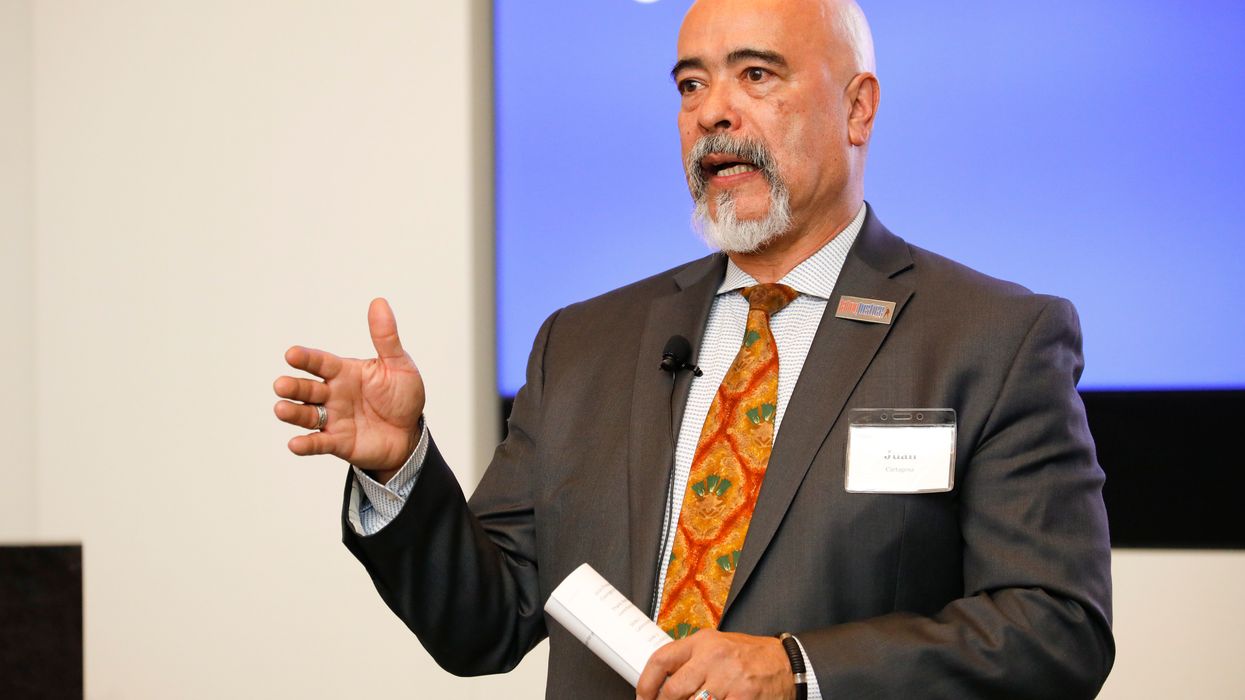This month Juan Cartagena marks nine years as president and general counsel of LatinoJustice PRLDEF. It advocates for Hispanic civil and voting rights, and his interests include the effects on those rights of mass imprisonment, language barriers and gerrymandering. After Columbia Law School he spent seven years in the 1980s as a junior attorney for the same organization, then called the Puerto Rican Legal Defense and Education Fund. He later worked for the government of Puerto Rico, as a municipal judge in Hoboken, N.J., as general counsel of the Hispanic Bar Association of New Jersey and as a top official at the Community Service Society, which litigates on behalf of the poor. He also lectures at Rutgers. His answers have been edited for clarity and length.
What's democracy's biggest challenge, in 10 words or less?
Easing the way for the unregistered to vote.
Describe your very first civic engagement.
Supporting the candidacy of Julian Robinson, the first African American to run for mayor in Jersey City in 1969 — before I was of age to vote. The power of electoral politics was forged for me, and the fact it was a local election made the connection between that power and my neighborhood more direct. The buzz created by this historic campaign was palpable and reflected the expansive mood of the country with the ascendance of the Black Panthers, the Young Lords, justice for Latino farmworkers and the protests against the Vietnam War. Everything seemed possible, and the ballot was one of many accessible tools for change.
What was your biggest professional triumph?
Decades later there was a mayoral election in Jersey City when the incumbent conspired to win by "slowing down" the vote in black and Puerto Rican neighborhoods, which can only happen if that vote is suppressed. After nine years of litigation under the Voting Rights Act, we secured a million-dollar fund to compensate the voters discriminated against. The suit also led to a change in the state election code preventing the targeting of voter challenges by neighborhood or because of residence in public housing. Early on, over beers after a long day of depositions, my co-counsel and I made a pact never to withdraw from the case no matter where we worked. Nine years later, we toasted again.
And your most disappointing setback?
Removing the right to vote for someone simply because they are incarcerated, or on parole, is an affront to an inclusive democracy. In Canada, Puerto Rico, South Africa and Israel, you can vote from your prison cell, as you can in Vermont and Maine. But 48 states still prohibit it. That's the background for one of my biggest disappointments in court — losing a challenge to New York's restrictions in this regard. But years later, I celebrated in Florida with LatinoJustice staff and community leaders who themselves were previously incarcerated when voters in 2018 restored the vote after someone finishes their prison terms and parole. Over a million citizens became eligible to vote but the battle, for me, is not over until everyone, regardless of incarceration, can have a voice in our democracy.
How does your identity influence the way you go about your work?
I am a Puerto Rican man raised in a working-class home by a single head of household, my mother, in urban America. You cannot escape learning about the injustices and exploitation that surround you in such an environment. Nor could I ignore the fact that there was amazing talent all around me in public schools whose lives were never nurtured. I cannot accept injustice. Never could and never will.
What's the best advice you've ever been given?
From my family: Never forget who you are. From my professional circle: The law is easy. Facts are hard.
Create a new flavor for Ben & Jerry's.
CafeBuca. Coffee ice cream laced with a syrup made from Sambuca.
What's your favorite political movie or TV show?
"The Wire."
What's the last thing you do on your phone at night?
Set the alarm.
What is your deepest, darkest secret.
I want to whistle a solo on a recording of Afro-Blue.




















Trump & Hegseth gave Mark Kelly a huge 2028 gift